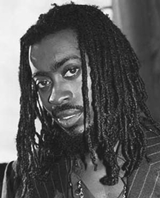LIFEBeat nixes AIDS benefit with anti-gay reggae stars, blames activists
LIFEBeat, the music industry AIDS charity, had scheduled a reggae concert for July 18 at New York’s Webster Hall headlined by Beenie Man and TOK, two of the most notorious “murder music” dancehall artists, whose lyrics have called for the hanging of lesbians and burning of gay men.
Despite LIFEBeat being fully aware that concerts by these artists have been canceled all over the world due to gay protests, the organization intended to go ahead with including them despite an outpouring of protest from New York’s African-American gay leaders—that is, until the afternoon of July 12.
In canceling the concert (which included other artists as well)—which is not what any organized protest group had called for—LIFEBeat, in a statement, blamed “the possibility of violence at the concert from the firestorm of protest incited by a select group of activists.”
Black gay activist Keith Boykin wrote in an e-mail, “Instead of addressing the need for dialogue, LIFEBeat tried to turn the incident into an attack on black gay bloggers and activists who raised the concern.” He also wrote that rather than “select activists,” the protests came from “a worldwide coalition of bloggers, activists, people with AIDS, and concerned citizens.” He concluded, “The sad part is that LIFEBeat still doesn’t get it.”
Groups including the National Black Justice Coalition, the New York State Black Gay Network, Gay Men of African Descent, Unity Fellowship Church, and the Minority Task Force on HIV/AIDS had scheduled a press conference for July 13 at LIFEBeat’s headquarters demanding the group “dis-invite the two artists, or demand the artists make public statements disavowing their homophobic remarks.”
In “Boom Bye Bye,” Beenie Man sings about shooting gay men in the head. TOK has a song called “Chi Chi Man” that calls for burning gay men.
Beenie Man gave a half-hearted “I’m-sorry-if-I-offended-anyone” non-apology back in 2004 for his anti-gay songs—adding that his real concern was people who “molest our kids”—but has evidently not made the kinds of amends that would satisfy his critics, who have suggested he make a substantial donation to the Jamaica Forum for Lesbians, All-Sexuals and Gays, the Jamaican LGBT group under siege there. J-FLAG’s leader Brian Williamson was brutally murdered in a gay bashing in 2004. The protesters are calling on LIFEBeat to do a new concert with “gay-friendly” artists for J-FLAG’s benefit, which Karlene, co-chair of the group, said “would be the first time a protest of these artists raised money for us.”
On July 11, LIFEBeat was still defending the inclusion of the homophobic artists, claiming that while it does not condone the anti-gay lyrics, the “staff and board also strongly believe that dialogue opens doors.” LIFEBeat publicist Jody Miller acknowledged that the group had not dialogued with the singers, but saw the concert itself “as a first step.”
Miller asserted that “the staff and board” of LIFEBeat supported including Beenie Man and TOK in the concert. Gay City News left messages for most of the board members and the first three who called back—Mel Cheren, who helped start the group; Jerry Blair of The Fuerte Group; and Donna Futterman, MD, director of Adolescent AIDS Program at Montefiore Hospital—expressed opposition to the planned performances.
Daniel Glass, the founding board president, acknowledged that there was no collective board decision to invite the controversial artists, but insisted “the board was told.” John Cannelli, executive director of LIFEBeat, said there was “no push back” from board members on the issue. Glass said their purpose in inviting the singers “was to get a dialogue going” in the Caribbean-American community about AIDS. But they did not engage the artists themselves in dialogue first and appear not to have considered their responsibility in creating an explosive mix of Caribbean straight kids showing up for a concert in the East Village with the inevitable gay protests outside.
Cannelli acknowledged that the violent threats they claimed to have received were anonymous, not from the leaders protesting his inclusion of these artists. He said that he had no evidence that Beenie Man and TOK had made amends for their profiting from anti-gay songs, but said, “I feel that any artist that agrees to perform for free at an AIDS concert is making a statement.”
State Senator Tom Duane, out gay and HIV-positive, remembered Gay Men’s Health Crisis having to cancel a concert featuring Guns and Roses in the 1980s. He said, “LIFEBeat should begin a dialogue now and maybe someday it will be acceptable for Beenie Man to headline an AIDS concert. But not now.”
GMHC’s interim director Marjorie Hill issued a statement expressing “grave concerns” about the artists’ lyrics and a “hope” that a solution could be found, but did not respond to a question about whether she had urged LIFEBeat to drop the men from the concert. Sean Strub of POZ magazine made a substantial effort to get mainstream AIDS organization leaders to protest to LIFEBeat.
Futterman praised LIFEBeat as “the only people who go to concerts with HIV awareness and prevention messages, reaching thousands of kids,” but disagreed with this latest attempt at “dialogue.”
gaycitynews.com


































